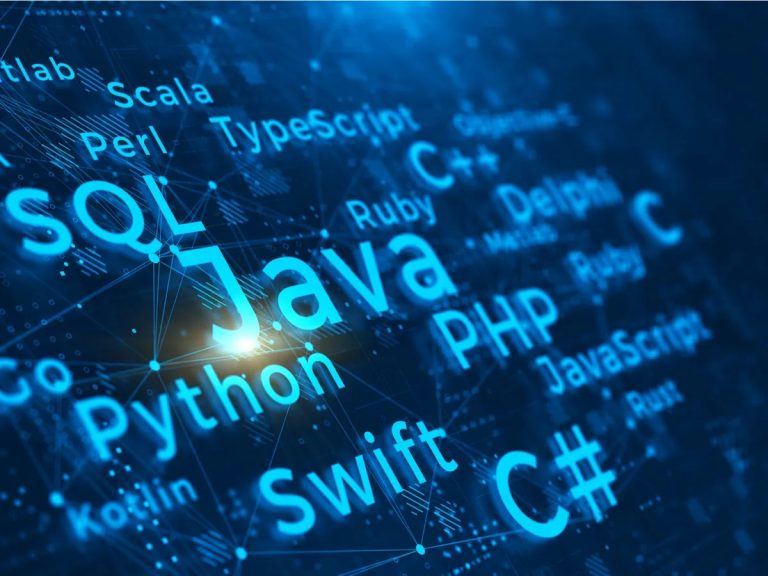
Programming languages have been the backbone of software development for many years now. The technology sector has been evolving at a rapid pace with new programming languages and frameworks emerging every year, just like a brand-new PlayAmo login pops us every now and then. The emergence of new programming languages is driven by the need for better programming tools and solutions to the problems developers face in their work.
As technology continues to advance at an unprecedented pace, so do the programming languages used to build the software that powers our world. While established languages like Java, Python, and C++ continue to dominate the industry, there are a number of up-and-coming languages that are poised to take over in the coming years. These programming languages have been gaining popularity in recent years due to their unique features and capabilities that make them stand out from the rest.
Rust
Rust was created by Mozilla and is designed to provide low-level control without sacrificing safety. Rust’s memory management system is unique, and it has been gaining traction for its ability to provide high-performance applications without compromising on security.
Rust’s memory management system is based on ownership and borrowing. The ownership system allows the compiler to track how memory is used in a program, and the borrowing system ensures that the memory is accessed in a safe and controlled manner. This makes Rust an ideal language for building high-performance and secure applications.
Rust’s popularity is also driven by its ability to interoperate with other languages such as C and C++. This allows developers to leverage existing codebases and libraries, making it easier to build and maintain large applications.
Kotlin
Kotlin is a cross-platform, statically-typed programming language that is designed to work seamlessly with Java. It was created by JetBrains, the company behind popular development tools such as IntelliJ IDEA and PyCharm.
Kotlin has been gaining popularity in recent years due to its clean syntax, null safety, and functional programming features. It is also designed to work seamlessly with existing Java code, making it easier for developers to migrate to Kotlin.
Kotlin has become the preferred language for Android development, and it has been gaining popularity in the backend development community. Its clean syntax and functional programming features make it easier to write concise and maintainable code.
Swift
Swift is a programming language that was created by Apple in 2014. It was made to provide a better development experience for iOS and macOS developers. Swift’s syntax is more concise and expressive compared to Objective-C, the language it was designed to replace.
Swift has been gaining popularity in recent years due to its performance and safety features. It is a statically-typed language that provides automatic memory management, making it easier to write secure and efficient code.
Swift has also been gaining traction in the backend development community due to its server-side capabilities. Its ability to interoperate with existing C and Objective-C code makes it easier to integrate with existing codebases.
Go
Go is a programming language that was created by Google in 2009. It was created to provide a better development experience for large-scale networked systems. Go’s syntax is similar to C, making it easier for developers to learn and write code.
Go has been gaining popularity in recent years due to its performance and concurrency features. It is designed to work with modern hardware and can handle large-scale systems with ease. Go’s concurrency model is unique and makes it easier to write scalable applications.
Go’s popularity is also driven by its ability to interoperate with other languages such as C and Python. This allows developers to leverage existing codebases and libraries, making it easier to build and maintain large applications.
Julia
Julia is a high-level, high-performance programming language that is designed for numerical and scientific computing. It was developed at MIT and has been gaining traction in the data science community due to its speed, ease of use, and ability to handle large datasets.
Julia offers several features that make it ideal for scientific computing, such as a JIT (Just-In-Time) compiler, parallel computing capabilities, and multiple dispatches. It is also interoperable with other languages, such as Python and R. Julia has been used by companies like IBM, Ford, and Airbnb.
Julia has been gaining traction in the scientific and data analysis communities because of its speed and ease of use. It is being used by companies such as Intel and Amazon for scientific computing and machine learning applications. Additionally, the language has become a favorite of the data science community because of its support for data visualization, statistical analysis, and other data science applications.
TypeScript
TypeScript is gaining popularity among web developers due to its ability to catch errors at compile time and make development more efficient.
TypeScript offers several features that make it appealing to developers, such as optional types, interfaces, and type inference. It is also interoperable with JavaScript, making it easy to integrate with existing codebases. TypeScript has been used by companies like Microsoft, Asana, and Slack.
Elixir
Elixir is a functional programming language that was designed to be scalable, fault-tolerant, and easy to write concurrent applications. Elixir runs on the Erlang virtual machine and has features such as pattern matching, lightweight processes, and message passing that make it well-suited for building distributed systems amongst other aspects. Elixir also has a simple syntax that makes it easy to learn and use.

